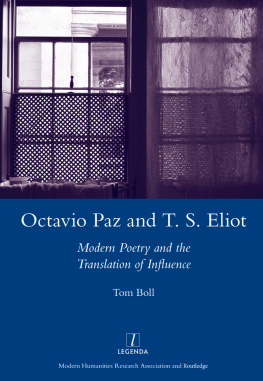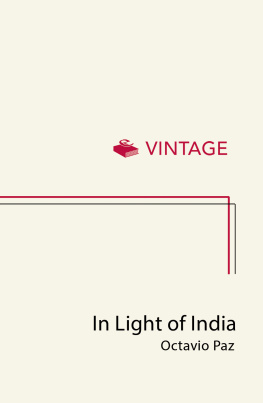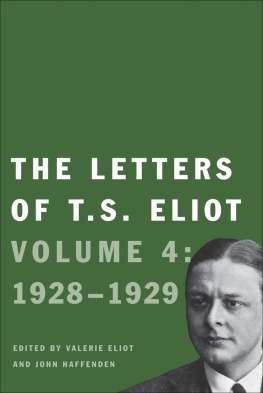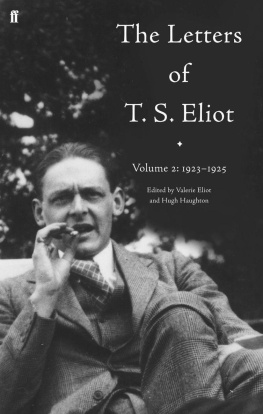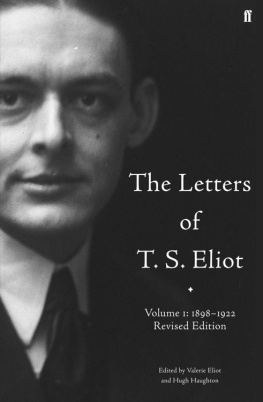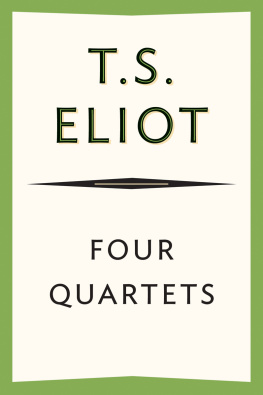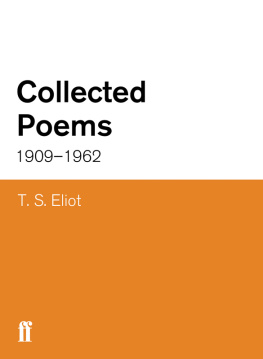OCTAVIO PAZ AND T. S. ELIOT
MODERN POETRY AND THE TRANSLATION OF INFLUENCE
Legenda
LEGENDA, founded in 1995 by the European Humanities Research Centre of the University of Oxford, is now a joint imprint of the Modern Humanities Research Association and Routledge. Titles range from medieval texts to contemporary cinema and form a widely comparative view of the modern humanities, including works on Arabic, Catalan, English, French, German, Greek, Italian, Portuguese, Russian, Spanish, and Yiddish literature. An Editorial Board of distinguished academic specialists works in collaboration with leading scholarly bodies such as the Society for French Studies and the British Comparative Literature Association.

The Modern Humanities Research Association (MHRA) encourages and promotes advanced study and research in the field of the modern humanities, especially modern European languages and literature, including English, and also cinema. It also aims to break down the barriers between scholars working in different disciplines and to maintain the unity of humanistic scholarship in the face of increasing specialization. The Association fulfils this purpose primarily through the publication of journals, bibliographies, monographs and other aids to research.

Routledge is a global publisher of academic books, journals and online resources in the humanities and social sciences. Founded in 1836, it has published many of the greatest thinkers and scholars of the last hundred years, including adorno, einstein, Russell, Popper, Wittgenstein, Jung, Bohm, Hayek, Mcluhan, Marcuse and Sartre. Today Routledge is one of the world's leading academic publishers in the Humanities and Social Sciences. It publishes thousands of books and journals each year, serving scholars, instructors, and professional communities worldwide.
www.routledge.com
Editorial Board
Chairman
Professor Colin Davis, Royal Holloway, University of London
Professor Malcolm Cook, University of Exeter (French)
Professor Robin Fiddian, Wadham College, Oxford (Spanish)
Professor Anne Fuchs, University of St Andrews (German)
Professor Paul Garner, University of Leeds (Spanish)
Professor Andrew Hadfield, University of Sussex (English)
Professor Marian Hobson Jeanneret, Queen Mary University of London (French)
Professor Catriona Kelly, New College, Oxford (Russian)
Professor Martin McLaughlin, Magdalen College, Oxford (Italian)
Professor Martin Maiden, Trinity College, Oxford (Linguistics)
Professor Peter Matthews, St Johns College, Cambridge (Linguistics)
Dr Stephen Parkinson, Linacre College, Oxford (Portuguese)
Professor Suzanne Raitt, William and Mary College, Virginia (English)
Professor Ritchie Robertson, The Queens College, Oxford (German)
Professor David Shepherd, Keele University (Russian)
Professor Michael Sheringham, All Souls College, Oxford (French)
Professor Alison Sinclair, Clare College, Cambridge (Spanish)
Professor David Treece, Kings College London (Portuguese)
Managing Editor
Dr Graham Nelson
41 Wellington Square, Oxford ox1 2JF, UK
legenda@mhra.org.uk
www.legenda.mhra.org.uk
Octavio Paz and T. S. Eliot
Modern Poetry and the Translation of Influence
TOM BOLL
Modern Humanities Research Association and Routledge
2012
First published 2012
Published by the
Modern Humanities Research Association and Routledge
2 Park Square, Milton Park, Abingdon, Oxon OX14 4RN
711 Third Avenue, New York, NY 10017, USA
LEGENDA is an imprint of the
Modern Humanities Research Association and Routledge
Routledge is an imprint of the Taylor & Francis Group, an informa business
Modern Humanities Research Association and Taylor & Francis 2012
ISBN 9-781-1)06540-43-2 (hbk)
All rights reserved. No part of this publication may be reproduced, stored in a retrieval system, or transmitted in any form or by any means, electronic, mechanical, including photocopying, recording, fax or otherwise, without the prior written permission of the copyright owner and the publisher.
Product or corporate names may be trademarks or registered trademarks, and are used only for identification and explanation without intent to infringe.
Contents
Guide
FOR MY MOTHER AND FATHER
I would like to thank the AHRB whose financial support made this book possible in its earlier form as a PhD. I am extremely grateful to my supervisors, Jason Wilson and Peter Swaab, for their encouragement, sensitivity and tact; also to my examiners Edwin Williamson and Robert Havard who offered constructive advice. Theo Hermans and Elinor Shaffer gave me valuable opportunities to discuss different aspects of this study at their respective Comparative Literature and European Reception of British Authors Seminars. John Lyon, Tim Webb, David Henn and Stephen Hart gave advice and support at various stages of the studys development.
A number of people were generous with their time and their opinions in Mexico City. Anthony Stanton provided me with valuable information from his conversations with Paz about T. S. Eliot. Homero Aridjis helped me to articulate some of my own murkier thinking about Paz. Vctor Manuel Mendiola also provided stimulating discussion, as did Christopher Domnguez Michael. Mara Enriqueta Gonzlez Padilla kindly introduced me to an MPhil thesis on Paz and Eliot that I had not been aware of previously. Rosa Mara Villareal provided me with invaluable introductions. My understanding of Mexican poetry has been greatly enhanced by conversations with Coral Bracho, Marcelo Uribe and David Huerta.
Staff at various libraries have offered invaluable assistance. In particular, I would like to thank the University of London and University College London libraries, the Institute of Latin American Studies, the Taylor Institution Library in Oxford, the British Library, the Biblioteca Daniel Coso Villegas at the Colegio de Mxico, and the Biblioteca Nacional de Mxico.
Valerie Eliot has kindly provided me with copies of correspondence between T. S. Eliot and ngel Flores. I would like to thank the Eliot Estate for permission to quote from Eliots works. I am also grateful to Marie-Jos Paz who has allowed me to quote from the works of Octavio Paz.
This book could not have been published without the financial support of the Department of Spanish, Portuguese and Latin American Studies at Kings College London. I am also grateful for the moral support of colleagues at Kings, in particular to Catherine Boyle.
Finally, I owe many personal debts of gratitude and affection: to Bet Daurella, who first introduced me to Pazs poems with a present for Sant Jordi s day, to Alice Bree, Sarah Maguire, Diego Flores-Jaime, Cecilia Trevio, Margaret Boll, and to my wife, Jane, without whom none of this would have been possible.
T.B., London, December 2011
The following abbreviations are used in bibliographical references in the text. I have, where possible, referred to the Obras completas of Octavio Paz, published between 1994 and 2003 by the Crculo de Lectores in Spain and the Fondo de Cultura Econmica in Mexico. While this edition is a faithful record of the legacy that Paz wished to leave, it incorporates late revisions of the earlier work which present the literary historian with a troublesome combination of original impulse and retrospection. In such cases I have referred to the earliest available edition of the work, directing the reader to the relevant point of the Obras completas in the notes.

